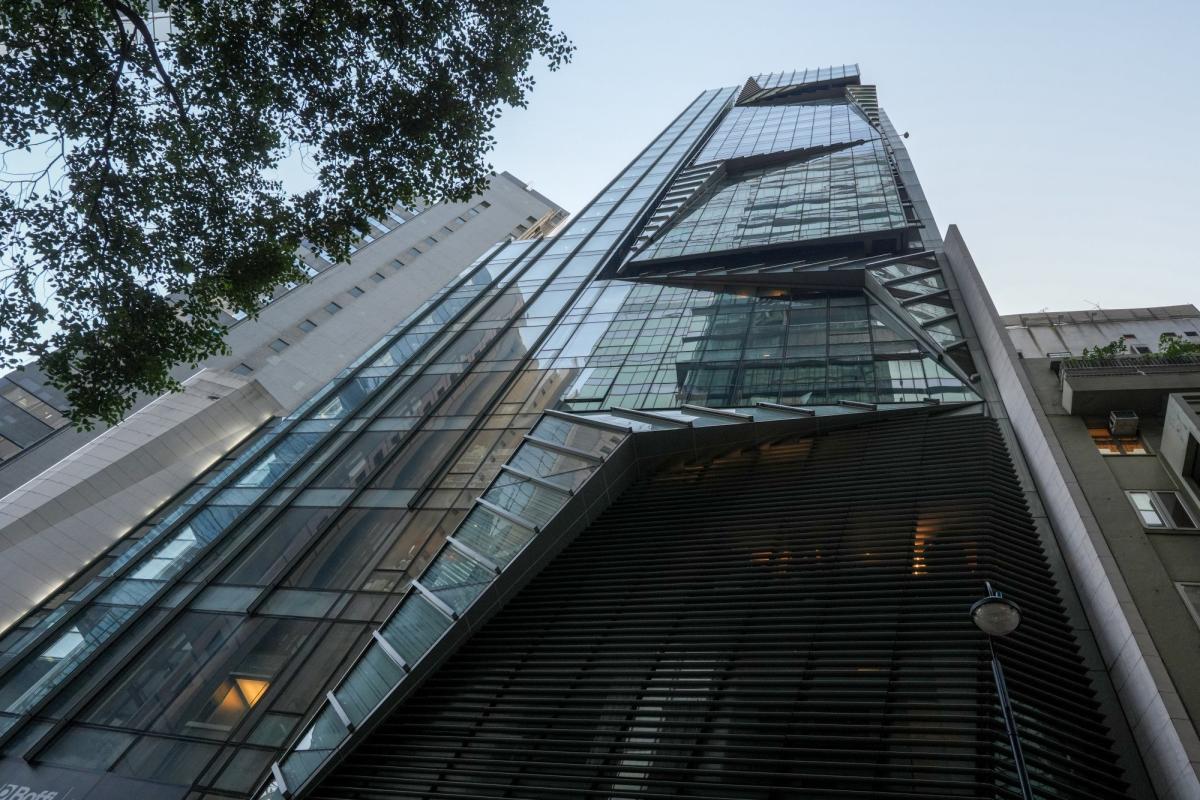I
n Hong Kong's commercial property market, a perfect storm is brewing. High interest rates, a decline in rental income, and a shift in consumer behavior have created a toxic mix that's leaving owners struggling to meet their debt obligations. The city's once-thriving retail sector has been particularly hard hit, with valuations plummeting by 40% from recent highs.
A prime example is the Cubus building in Causeway Bay, a mixed-use property that was recently put up for sale due to shaky financing. With over a third of its floors vacant and an opening price of HK$1.4 billion (US$180 million), nearly 30% lower than its peak valuation, it's clear that the market is in turmoil.
The fallout has reached far and wide, affecting everyone from real estate moguls to savvy local investors. Banks are now squeamish about lending, leaving them holding a bag of bad debts - which are rising. "It's really a marketwide slump," said Benjamin Chow, head of real assets research for Asia at MSCI. "Everybody has their own fair share of pain."
Despite the US Federal Reserve's rate cut this month, experts say the market might not turn the corner soon as underlying economic fundamentals remain too weak to draw big, quality tenants back. On top of that, investor confidence remains shaky.
Grade A office rents have plunged by about 38% since their pre-Covid peak and are projected to fall by 7-9% this year, according to Cushman and Wakefield. Property valuations have been dragged down - for office buildings, they're 25% lower, according to MSCI - by high vacancy rates and sliding rental income.
The distress in the commercial property market is now bleeding into the city's financial system, which had HK$570 billion in debt exposure to the sector as of June. Banks are now in a precarious position because if they call the loans, their clients will likely default, which could ripple outward and metastasize into more severe problems.
When negotiations with troubled borrowers reach a dead end, banks find that they need to be more aggressive with their enforcement actions against distressed properties. This has triggered a record wave of receivership sales in the city, according to Glen Ho, Deloitte China's restructuring, turnaround and cost-transformation national leader.
Despite all the distress, Hong Kong's commercial real estate market is not likely to spark a systemic crisis akin to what is plaguing China today. It is a much smaller and more mature market, and local developers are more conservative than their mainland counterparts - with lower leverage and greater liquidity.
However, this limited relief does little to address the fundamental issues haunting the market. The problems of tepid demand, too much supply, and unsteady confidence remain unresolved, casting a pall over prospects for the sector. On Thursday, a record loss at one of the city's largest property conglomerates forced its CEO to step aside so the company could undertake a series of asset sales to improve its balance sheet.
In the end, Hong Kong's commercial property market needs a more robust economic recovery from the mainland and increased business confidence to stabilize - and these scenarios have yet to occur. "It's a little early to call a bottom," said Chow. "Probably we have to wait till sometime in 2025, but that is up in the air still."














